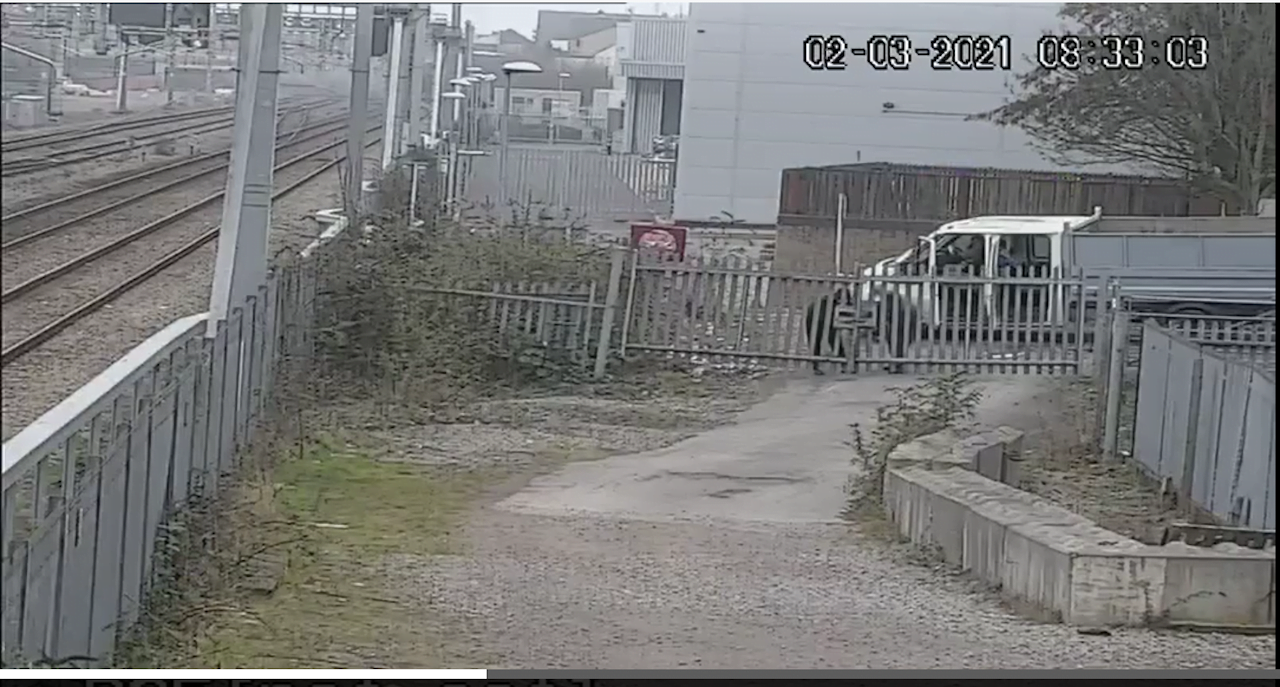Security has been increased and now includes drones and forensic marking agents which have supported the arrests made.
Metal theft, especially cables, causes extreme issues for the entire rail network with the Wales and Borders route seeing costs of £1.1m since January.
The improvements made in fighting cable theft are now making it much easier to identify and apprehend criminals with figures showing double the arrests of cable theft criminals when compared to the previous three years.
Network Rail's approach to dealing with cable theft on the railway includes:
- Funding British Transport Police officers
- Using overt and covert security cameras to alert that people are on the network, this also supports the police.
- Using drones to help with increasing patrols
- Installing new ways to secure cables
- Using forensic marking agents to track thieves
- Using cables which are more difficult to steal and are easier to identify
- Creating a dedicated security team.

Theft of metal is also a huge issue for the rail network, with thieves targeting overhead power lines and metal fences which are sold for scrap! Network Rail is also working with both the wider and scrap metal dealers in order to stop stolen material being sold, which falls under the Scrap Metal Dealer Act 2013 as follows:
- Scrap metal dealers must be licensed, and local authorities have the power to refuse unsuitable applicants and revoke licenses
- Police have the power by court order to close unlicensed scrap yard
- All sellers of metal must show verifiable ID, which dealers must record and keep
- Cash trades for scrap metal are illegal without exception and subject to unlimited fines
A public national register of scrap metal dealers has now been created which will support how sales of scrap metal are accounted for alongside legitimising procedures of those who trade in scrap.
The rail network in Britain has been designed so that if a cable is cut, trains are brought to a stop in order to protect passengers, however, this fail-safe strategy leads to long delays whilst the issue is discovered and repaired.
A great deal of cable theft during this period has taken place in South Wales and due to upcoming trials, investigations and security, Network Rail is not able to reveal further detail on the locations affected.
Andy Armstrong, programme manager for route crime and security for Network Rail Wales & Borders, said:
“This increase in arrests and convictions is a welcome half-way-marker to 2023. Cable theft costs Network Rail millions of pounds each year. The total cost to the economy – taking into account the impact of freight delays to power stations and supermarkets, and on passengers whose journeys are disrupted – is even higher.”
“We are working with the BTP and wider industry to crack down on cable theft, as well as other metal theft. Our adoption of new technologies has already seen an increase in arrests and convictions, and we will continue to improve security and ensure that the railway can run safely, securely and reliably.”
British Transport Police National Lead for Metal Crime, Superintendent Mark Cleland, said:
“BTP are working closely with the rail industry, the waste industry and partners, including the joint unit for waste crime and the national economic crime centre to target those who see an opportunity to make money from stealing metal.”
“Metal crime is highly disruptive to the UK economy and the actions of those who steal metal can put their own lives and others' lives at risk. BTP continues to run numerous operations targeting organised criminality, ensuring we seek convictions and confiscate all assets to ensure no one can profit from this crime.”
“In the last two years alone, hundreds of arrests have been made and millions of pounds recovered from offenders with numerous multi-year convictions proving that any targeting of national infrastructure has severe implications to those who decide to test our ability to catch them.”
Just wondering, would it be a good idea, instead of overhead cables which get taken. The electric power is taken from a 3rd rail system, same as Southern England and the Tube in London.
Ok trains would need to be modified, but it would also cancel the need for masts every so many metres.